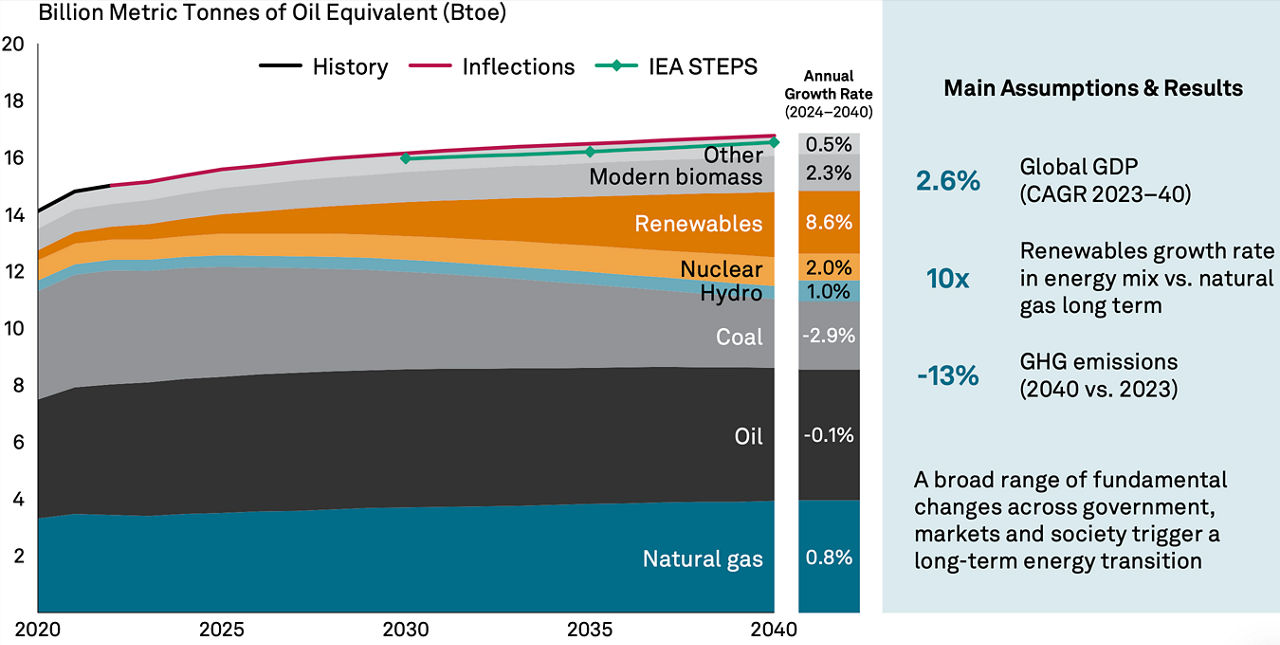Taiwan Shifts To LNG: Impact Of Nuclear Reactor Closure

Table of Contents
The Decline of Nuclear Power in Taiwan: A Necessary Transition?
Taiwan's decision to phase out nuclear power is a complex issue driven by a confluence of factors. While nuclear energy has historically provided a significant portion of the island's electricity, growing public concern over safety following the Fukushima disaster in 2011 played a crucial role. This anti-nuclear sentiment, coupled with the aging infrastructure of Taiwan's existing nuclear power plants, led to a national referendum and subsequent government policy shifts. The aging reactors presented increasing safety risks, necessitating substantial investment in maintenance and upgrades – a cost many felt was unsustainable.
- Aging nuclear power plants and safety risks: The operational lifespan of Taiwan's existing nuclear plants is nearing its end, raising legitimate concerns about potential accidents and the long-term management of nuclear waste.
- Public pressure and anti-nuclear sentiment: Following Fukushima, public opinion firmly shifted against nuclear power, with widespread protests and demands for a complete phase-out.
- Government policy and long-term energy strategy: The Taiwanese government, responding to public pressure and recognizing the long-term limitations of nuclear power, initiated a policy to gradually decommission its nuclear plants and transition to alternative energy sources.
The Rise of LNG: Filling the Energy Gap
With nuclear power plants gradually being decommissioned, LNG has emerged as the primary replacement for baseload power generation. This transition, however, requires significant investment in infrastructure. New LNG import terminals and extensive pipeline networks are needed to facilitate the import, storage, and distribution of this crucial energy resource. The economic implications are substantial. Taiwan's increased reliance on LNG exposes it to the volatility of the global energy market, potentially leading to fluctuating energy prices and impacting both consumers and industries.
- Increased LNG import terminals and infrastructure investment: Massive investments are being made to construct and upgrade port facilities and pipeline infrastructure to handle the increased LNG imports.
- Economic costs associated with LNG imports: The cost of importing LNG, including transportation and handling, significantly impacts the overall cost of electricity generation.
- Price volatility of LNG in the global market: Global LNG prices are subject to fluctuations influenced by geopolitical events and supply-demand dynamics, creating uncertainty for Taiwan's energy sector.
- Long-term energy security implications: Taiwan's heavy reliance on imported LNG raises concerns about energy security and its vulnerability to potential supply disruptions.
Environmental Considerations: A Cleaner Future or New Challenges?
The shift to LNG presents a complex environmental picture. While often touted as a cleaner alternative to coal, LNG combustion still produces greenhouse gas emissions, albeit at lower levels than coal. Air quality concerns related to LNG power plants also remain. However, the transition offers opportunities for integrating renewable energy sources, like solar and wind power, to mitigate the environmental impact and achieve a more balanced and sustainable energy mix.
- Greenhouse gas emissions from LNG combustion: While less than coal, LNG combustion still contributes to greenhouse gas emissions, impacting climate change.
- Air pollution from LNG power plants: The combustion of LNG can release pollutants, impacting air quality, especially in areas surrounding power plants.
- Opportunities for integrating renewable energy sources (solar, wind): Combining LNG with renewable energy sources can create a more diversified and sustainable energy system.
- Carbon capture and storage technologies: Exploring and implementing carbon capture and storage technologies could significantly reduce the environmental impact of LNG-based power generation.
Geopolitical Implications: Energy Security and International Relations
Taiwan's increasing dependence on imported LNG has significant geopolitical implications. The island nation's reliance on international suppliers creates vulnerabilities in its energy security. Supply disruptions or price manipulation by major LNG exporters could severely impact Taiwan's economy and stability. Diversifying LNG import sources and strengthening international energy partnerships are crucial strategies to mitigate these risks.
- Diversification of LNG import sources: Reducing reliance on single suppliers is critical to minimize the impact of potential supply disruptions.
- Potential for supply disruptions and price manipulation: Taiwan's energy security is directly impacted by the stability and reliability of its LNG suppliers.
- Geopolitical implications for Taiwan's energy security: Taiwan's energy dependence makes it vulnerable to geopolitical pressures and influences.
- Strengthening international energy partnerships: Developing strong relationships with diverse LNG suppliers enhances Taiwan's energy security.
Conclusion: Navigating Taiwan's Energy Future: A Balanced Approach to LNG and Beyond
Taiwan's shift to LNG is a multifaceted undertaking with significant implications for the nation's energy security, economic development, and environmental sustainability. While LNG offers a relatively cleaner and readily available alternative to nuclear power, it's crucial to acknowledge the environmental concerns and geopolitical vulnerabilities associated with this transition. A balanced energy strategy, incorporating a substantial increase in renewable energy sources alongside LNG, is essential to ensure a secure, sustainable, and resilient energy future for Taiwan. We encourage further discussion and research on "Taiwan Shifts to LNG," its long-term consequences, and the critical need for a holistic approach to energy planning. Share your thoughts and explore related articles to delve deeper into this complex issue.

Featured Posts
-
 Preocupacao Na Tijuca Incendio Em Escola Gera Inseguranca Entre Pais E Alunos
May 20, 2025
Preocupacao Na Tijuca Incendio Em Escola Gera Inseguranca Entre Pais E Alunos
May 20, 2025 -
 Goretzka In Germanys Nations League Squad Nagelsmanns Selection
May 20, 2025
Goretzka In Germanys Nations League Squad Nagelsmanns Selection
May 20, 2025 -
 Ferrariye Koetue Haber Hamilton Ve Leclerc Cin Gp Sinden Diskalifiye
May 20, 2025
Ferrariye Koetue Haber Hamilton Ve Leclerc Cin Gp Sinden Diskalifiye
May 20, 2025 -
 Nyt Mini Crossword Answers For March 27 2024
May 20, 2025
Nyt Mini Crossword Answers For March 27 2024
May 20, 2025 -
 Le Marche Des Restaurants De Biarritz Tendances Et Nouveautes
May 20, 2025
Le Marche Des Restaurants De Biarritz Tendances Et Nouveautes
May 20, 2025
